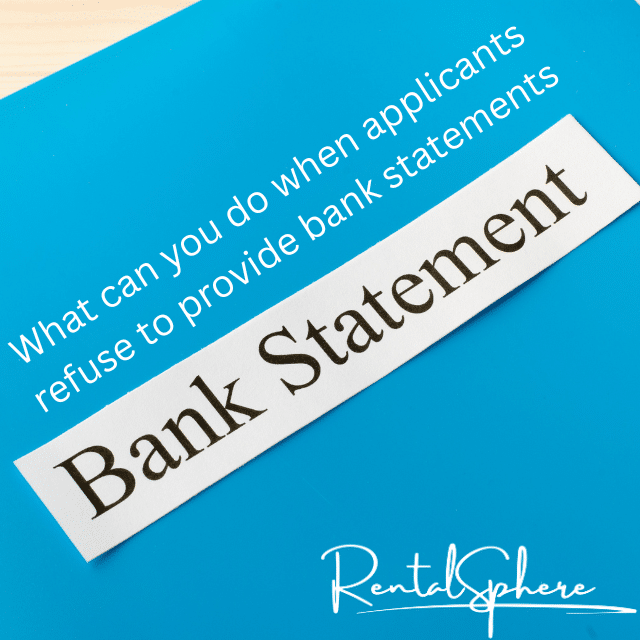One of the recurring challenges rental agents face is when applicants refuse to provide their bank statements, citing the Protection of Personal Information Act (POPIA). It’s crucial to address these concerns professionally and correctly, while also educating applicants on the legal obligations involved.
1. Clarifying POPIA’s Purpose
The first point to address is that POPIA stands for the Protection of Personal Information Act, not the Refusal of Personal Information Act. POPIA aims to protect how personal data is collected, processed, and stored, rather than provide blanket permission to refuse sharing information. Importantly, POPIA does not give individuals the right to refuse to provide personal information when it is necessary for a service provider to fulfill their duties.
2. Service Provider Rights and Responsibilities
Under POPIA, a service provider may insist on personal information if it is necessary to carry out their duties. In the context of rental applications, this means rental agents can require bank statements to perform their legally mandated due diligence.
3. Due Diligence as Part of the Agent’s Mandate
Rental agents act on behalf of property owners and are mandated to assess and verify the affordability of prospective tenants. This responsibility goes beyond merely accepting information at face value; it requires cross-checking documents and verifying accuracy. Due to the prevalence of fraudulent applications, this is not only best practice but a legal requirement.
Data from rental applications indicate that 1 in 4 applications contain false or altered information. As a result, agents cannot rely solely on one document to assess affordability. They must use multiple documents to cross-reference and ensure that the information provided is consistent and truthful.
4. FICA Compliance Obligations
Rental agencies are also classified as accountable institutions under the Financial Intelligence Centre Act (FICA). This designation imposes certain obligations, one of which is to ascertain the source of funds of potential clients. As part of this compliance process, agents need access to bank statements to verify the financial information provided.
5. The Need for Bank Statements
Given the dual obligations under both the rental mandate and FICA, it is clear that agents and agencies need access to bank statements to perform their duties properly. Refusing to provide these documents can hinder the rental application process, as agents are not able to verify critical information.
6. Can Agents Refuse Incomplete Applications?
Yes, agents can refuse to consider any applications that are not complete with all the required information, including bank statements. Since the completion of the application with all necessary documents is a prerequisite for conducting due diligence, any application that lacks critical information can justifiably be declined.
7. How to Communicate This to Applicants
When applicants refuse to provide bank statements, it is essential to explain the following:
- The agent’s role in conducting due diligence on behalf of the landlord.
- The importance of verifying financial information to prevent fraudulent applications.
- The legal obligation to collect and verify proof of income, as required by both the mandate and FICA.
- The agency’s commitment to protecting personal information in compliance with POPIA.
8. Offering Reassurance
Assure applicants that any personal information provided will be handled confidentially and securely, strictly in line with POPIA requirements. Explain that the information will not be shared beyond what is legally necessary for processing the rental application.
9. Final Thoughts
POPIA does not empower applicants to refuse to share necessary information, particularly when such information is required by law or mandate. Instead, it places a responsibility on rental agents and agencies to protect and securely handle personal information. By communicating openly and professionally, agents can address concerns while ensuring compliance with both POPIA and FICA.




